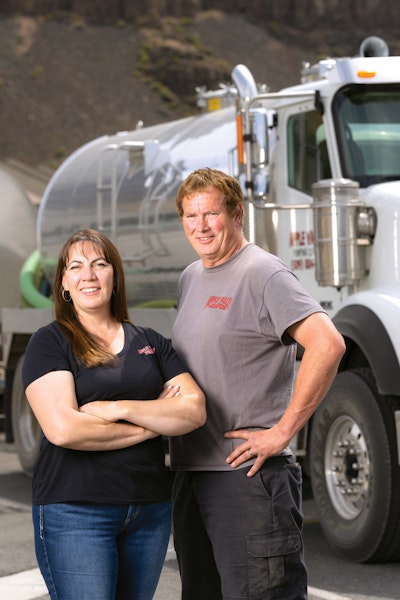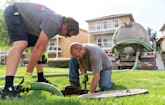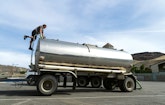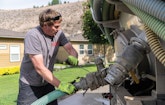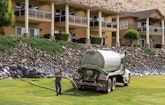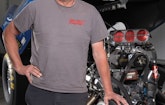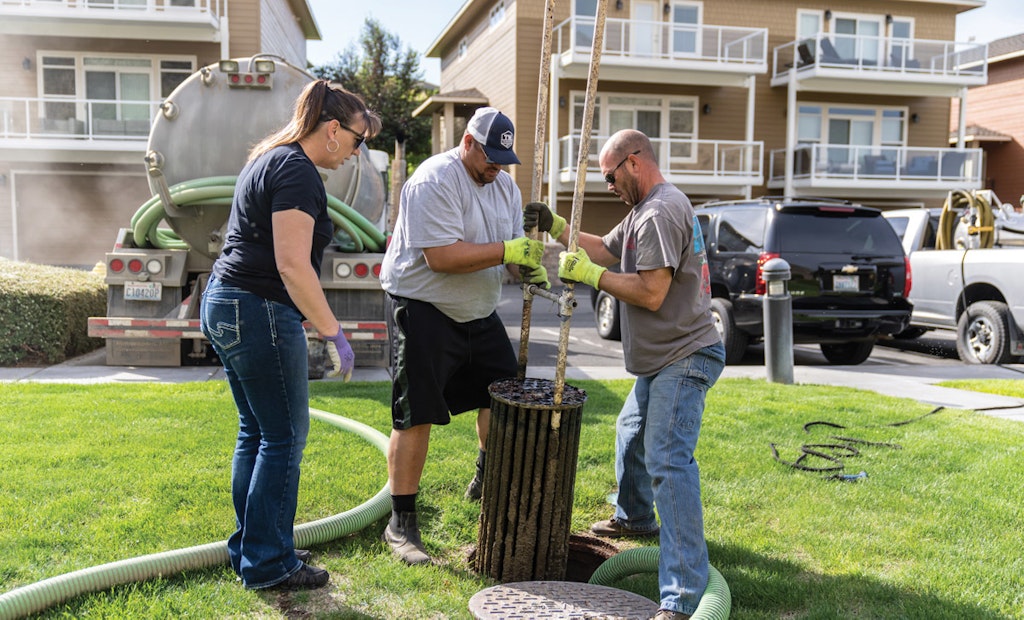
Luanne Howland, left, Alex Bravo, center, and Mike Kennedy pull a filter to be cleaned during a septic service call in Crescent Bar, Washington.
When Luanne and Greg Howland bought Apple Valley Pumping in 2018, they acquired a well-established business that was founded decades ago in 1979, offering customers both septic and grease tank pumping service and portable restroom rentals.
As such, it would’ve been easy to...
